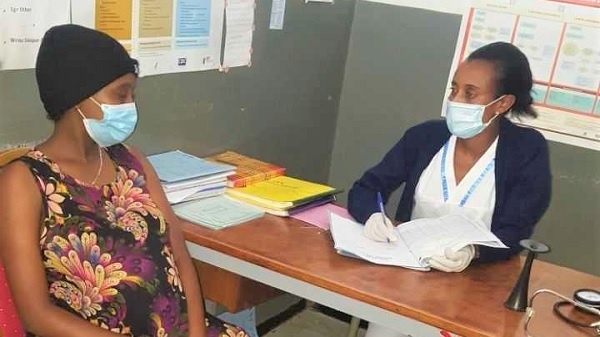
OTTAWA (CPAR) – Canadian Physicians for Aid and Relief (CPAR) and Global Affairs Canada are joining forces on a new four-year, $4.1 million CAD project to improve the sexual reproductive health (SRH) of women and adolescents in Ethiopia. The project will support the delivery of the national Ethiopian curriculum for SRH and the development of SRH service capacity.
The Amhara and Oromia regions of Ethiopia, where the project will be centered, lack youth-friendly SRH services. Gender discriminatory norms related to early and forced child marriage, female genital mutilation, and early pregnancy are common in the project communities. Obstetric fistula, a preventable birth complication that can result from a prolonged or obstructed labor and create urinary and rectal incontinence, is a devastating condition that can lead to women being ostracized and shut out of community life.
Through this project, CPAR and Global Affairs Canada will work with the Ethiopian Ministry of Health, the Ministry of Women and Children, the Ministry of Education, and with regional and zonal health authorities, local universities, community healthcare teams and local grassroots organizations to address these and other issues related to SRH education and services. The project will address SRH needs and work to reduce gender-based violence by empowering woman and girls to make healthy and well-informed decisions.
All project activities will take a collaborative and locally tailored approach. Peer-to-peer information and awareness materials will be developed and shared through youth-driven networks. Health workers and midwives will be trained in practical sexual reproductive health knowledge and skills, with a key focus on developing education and referral networks to address obstetric fistula.
- See also: Rate of poverty declines in Ethiopia, despite challenges – WB’s Ethiopia Poverty Assessment
Gender-balanced advisory committees will be created to foster widespread participation. The committees will comprise parents and youth as well as health care workers, faith and community leaders, elders and educators who will be instrumental in designing and disseminating project interventions and evaluating the results.
“The project’s multi-faceted focus on education, health services and advocacy will create and sustain change that will greatly benefit individuals and communities,” says Kathrina Loeffler, Executive Director. “We look forward to this new and exciting chapter for CPAR’s work in Ethiopia.”
Source: CPAR
